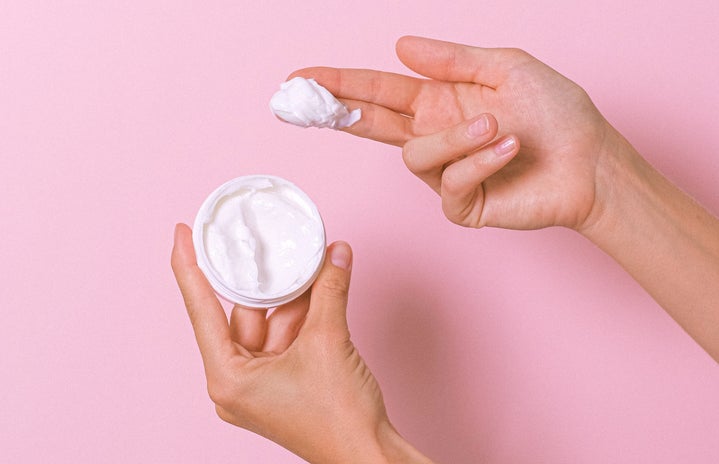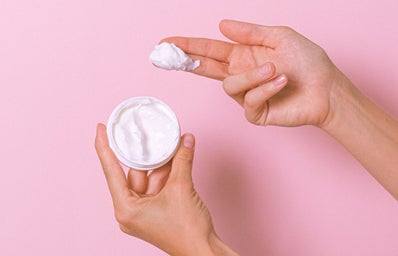“All-natural,” “organic,” and “chemical-free:” this type of jargon is used to market countless skincare products… but what does it really mean? Skincare brands say all sorts of things to legitimize their products; however, their messages can be misleading. Although many of the words that they use sound great, they often have no real meaning or relevance to a product’s ingredients or effects. Even worse, these brands sometimes go as far as to intentionally misrepresent scientific studies in order to support their marketing claims.
Here, I share three common marketing tactics to be wary of the next time you look for a new cleanser, moisturizer, or anything you plan to put on your face.
“Green beauty” or “clean beauty”
Products within the recent clean beauty movement are marketed as “clean” or “green,” and claim to promote sustainability or health — without referencing any standardized criteria that make them good for the environment or your body. These products are said to be “non-toxic,” and play off of the common fear of toxicity, while conveniently leaving out the fact that most ingredients only become dangerous at a certain level of concentration. Brands that put all their energy into promoting and fuelling the myth of “clean” ingredients miss the mark when it comes to true sustainability; instead, they should focus on the transition toward eco-friendly packaging, one of the most urgent environmental concerns of the industry.
“All-natural” and “chemical-free”
These terms are probably the most misleading of all because there’s actually no such thing as “chemical-free” skincare. When I say that everything is a chemical, I mean literally everything. By implying that chemicals are bad for your skin, these brands create an irrational fear of ingredients that are actually safe and effective, which does nothing to help us as consumers.
And then there’s the word “all-natural”: what does it even mean? What is defined as natural? Is it strictly plants? Is it plants and a few other acceptable chemicals? Although “natural” ingredients like fruit extracts can be beneficial, there are many other ingredients that are equally as safe — and perhaps more effective, too, depending on your skin type.
Fancy botanical extracts
While certain plant extracts do benefit your skin, there are still some problems with the way that they’re marketed in skincare products. First of all, the simple fact that a product contains a botanical extract does not make it effective. Many brands state that because botanical extracts are “natural” (see above), they’re more effective than other ingredients, which is simply not true. And it’s also just plain bad science.
There are so many factors that contribute to whether a botanical extract will work for your skin, such as skin type, skincare concern, and the extract’s level of concentration within the product. Case in point: sometimes, brands highlight ingredients like botanical extracts to promote products that contain very little of that ingredient… which ends up leaving you with a basically-regular bottle of moisturizer that’s just 10 dollars more expensive.
How to move forward
Now that you know about these marketing tactics, here’s what you can do to avoid falling for them. Some general rules to follow when you’re looking for a skincare product are to (1) make sure you understand your skin concerns and what type of product you’re looking for; (2) read each product’s ingredients list; and (3) do legitimate research (hello clinical studies!) on any ingredient callouts. To take it one step further, your best bet for ultimate reassurance is to check in with your dermatologist. They’ll be able to identify not only whether a product’s marketing claims are true, but also whether it’s suitable for your skin type.
The skincare industry is definitely imperfect when it comes to transparent marketing. But luckily, we as consumers have the power to investigate pseudo-scientific marketing claims and better equip ourselves to choose the right products for our skin. Investing in good skincare products is a tedious process, but it can also a rewarding one, especially once you find the right products and see the benefits of good skincare science!


